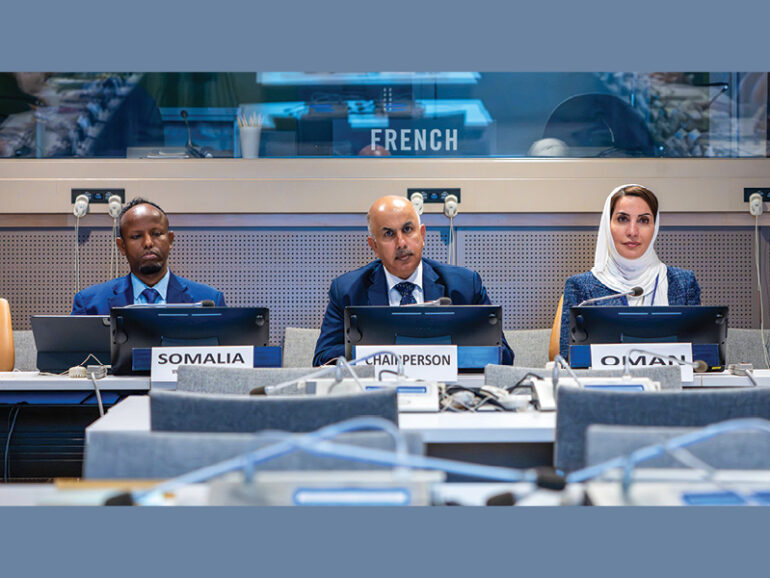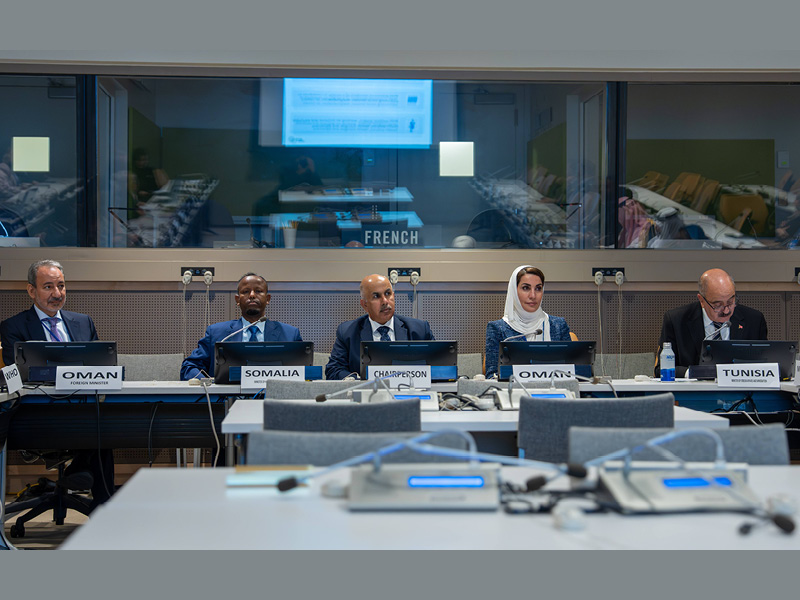
New York, USA – Oman hosted a high-level event titled ‘Unity in Wellness: Advancing Peace through Global Health’ on Tuesday on the sidelines of the 80th session of the United Nations General Assembly in New York in partnership with Finland, Somalia, Sudan, Switzerland and Yemen.
Opening the session, HE Dr Hilal Ali al Sabti, Minister of Health, reaffirmed Oman’s foreign policy of dialogue, understanding and cooperation. “We believe that health can serve as a bridge to peace – bringing communities together, building trust, and fostering resilience in the face of conflict and fragility,” he said.
HE Dr Sabti reiterated Oman’s commitment to the Global Health for Peace Initiative (GHPI) roadmap and to integrating the ‘Health and Peace’ approach in the ministry’s work to ensure programmes are equitable, participatory and sustainable. “The initiative, led by World Health Organization, calls on all of us to design health programmes that not only save lives but also strengthen social cohesion and promote stability,” he added.

Launched in November 2019 by WHO, with support from Oman and Switzerland, GHPI seeks to use health services as a bridge for dialogue, promote social cohesion and improve resilience in conflict-affected settings. It also aims to strengthen universal health coverage and protect populations in fragile environments.
HE Dr Sabti noted the ongoing conflicts and emergencies in the region, stressing the need for collective responses that minimise harm and maximise support, in line with the health-related Sustainable Development Goals. He said Oman would continue to act as a bridge connecting nations, fostering dialogue and turning shared challenges into shared opportunities for a healthier and more peaceful world. Quoting Tedros Adhanom Ghebreyesus, Director-General of WHO, he said, “There is no health without peace and no peace without health.”
Dr Ali Haji Adam Abubakar, Minister of Health and Human Services of Somalia, told the meeting that the link between health and peace was a lived reality in his country. He said Somalia’s efforts to rebuild its health system amid displacement and climate shocks had shown how health services can restore social cohesion and hope in conflict-affected communities.
He noted that health was often the first tangible sign of peace, as seen in newly liberated areas where the government prioritised services by deploying mobile teams, reopening health centres and launching vaccination campaigns even in insecure zones. These steps, he said, saved lives and rebuilt trust between government and citizens.
Dr Hanan Balkhy, WHO Regional Director for the Eastern Mediterranean, presented the summary and final recommendations.
The event concluded with new commitments to integrate health and peace into national and international policies. A set of recommendations was submitted to the UN General Assembly to support the global health and peace agenda.
The meeting underscored the role of health in promoting peace and development, sharing international experiences and encouraging multi-sector partnerships to build resilient health systems worldwide.
First developed through multilateral consultations in Geneva with more than 50 representatives from 24 countries and partners, GHPI gained momentum in May 2024 when WHO member states adopted a resolution on its implementation.
© 2021 Apex Press and Publishing. All Rights Reserved. Powered by Mesdac